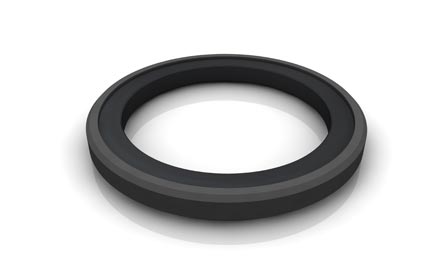Piston Seals
Sealing Success, One Piston at a Time – One Of The UK’s Largest Collection From Stock
M Barnwell Services is the largest independent manufacturer, stockist, and distributor of Piston Seals in the UK. With over £5.1 million in stock, we cater to over 5000 customers worldwide every month, ensuring swift and dependable delivery.
We supply a range of industries, including Hydraulics. To see the range of Hydraulic and Pneumatic Seals we stock, click here.
Overview
Piston seals, also referred to as piston rings, play a vital role in preserving a seal within the cylinder bore as the piston responds to system pressure during its cycles. These dynamic seals primarily fall into two categories: single-acting, where pressure acts on one side, and double-acting, where pressure affects both sides. The operational dynamics of the cylinder guide the selection of a particular piston seal.
Fundamentally, piston seals establish an internal seal between the piston and the cylinder bore, preventing the leakage of hydraulic fluid or air. This internal seal ensures that pressure remains on one side of the piston, facilitating the creation of the required force for back-and-forth movement.
How Does a Piston Seal Work?
Operating by containing pressure on one side of a piston without any leaks, a piston seal facilitates the effective application of mechanical force to drive the piston within the cylinder bore. Whether powered by hydraulic or pneumatic mechanisms, each system demands a customised design that suits its particular application.
The main goal of piston rings is to prevent any leakage around the piston, thereby improving the overall efficiency of the system. Depending on the design, the system can apply pressure in a single direction (single acting) or both directions (double acting), propelling the connected ram inward and outward as necessary.
Single-Acting Piston Seals
Single-acting piston seals effectively confine pressure on one side of a piston, ensuring no leakage occurs. This setup allows for the application of maximum force to propel the piston within the cylinder bore. Specifically designed to contain pressure on just one side, these seals enable a ‘single action,’ moving the piston along the cylinder.
It’s crucial to emphasise that in single-acting cylinders, the piston may have oil on the pressure side exclusively, with the opposite side filled with air. Therefore, piston seals need to minimise oil film transfer along the cylinder bore to prevent leakage. The air side of single-acting cylinders can also push air out and draw air in during piston reciprocation, potentially introducing moisture and contaminants that may damage the seals.
Double Acting Piston Seals
Double-acting piston seals effectively confine pressure on both sides of a piston, exerted from either direction. This action propels the connected ram both inward and outward or halts it in a controlled position. These seals have a symmetrical cross-section and perform sealing functions identically in both directions. Typically, double-acting piston seals consist of a slide ring and an energiser. The elastomeric energiser deforms to provide sufficient force, maintaining dynamic sealing contact with the cylinder bore and static sealing against the seal housing groove.
In the context of a double-acting cylinder, a moderately thick lubrication film between the piston seal and the cylinder bore is often acceptable to minimise friction and wear. However, fluid transportation during dynamic operation is usually minimal in most applications.
Materials
The choice of piston seal material significantly influences the selection of the seal profile. Depending on the desired characteristics and profile, a piston ring may be composed of one or multiple materials. Common materials for these seals include:
- Nitrile Rubber (NBR)
- Thermoplastic Polyurethane (H-PU)
- Acetal
- Viton™
- EPDM
- Polytetrafluoroethylene (PTFE)
When determining the optimal seal design and material for a specific application, factors such as expected pressures, acceptable friction losses, and whether the piston head is integral or split should be considered.
Given the distinct functions of single and double-acting seals, specifying the required seal type is crucial. Our single-acting piston seals can be precision machined to custom sizes. This allows for the addition of material to compensate for worn or re-manufactured piston or cylinder conditions.
Application by Industry
- Hydraulic and Pneumatic
– Piston seals are widely used in hydraulic and pneumatic cylinders to prevent leakage of hydraulic fluid and maintain pressure on one side of the piston. - Automotive
– These seals are integral components in automotive hydraulic systems, such as those found in brake and suspension systems. - Aerospace
– Piston Rings are used for smooth and controlled movement of various components. - Construction
– Construction machinery, like excavators and loaders, utilise piston seals for reliable performance. - Industrial
– Various industrial machines, including presses and injection molding machines, incorporate piston seals. - Marine
– They are used on ships and offshore platforms. - Material Handling
– Forklifts, conveyor systems, and other material handling equipment use piston seals. - Oil and Gas
– Drilling rigs, production equipment, and various applications in the oil and gas sector. - Railway
– Trains and railway maintenance equipment utilise piston seals.
These applications highlight the versatility and widespread use of piston seals in ensuring the efficiency and reliability of hydraulic and pneumatic systems across diverse industries.
If you would like more information about our range, download our catalogue, visit the Seal Maker Page, or contact a member of the team.
E&OE
